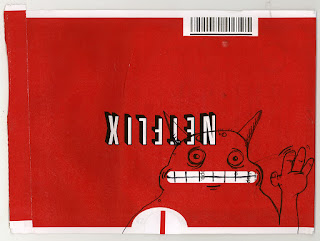INTRODUCTION-
An investigative docuseries of Netflix named ‘Bad boy billionaires-India’ featuring the infamous tycoons lives involving fraud and deceit that made their names and brought them down was released on 5th October. It previously got strangled in different lawsuits filed at local city courts in Andhra Pradesh by Raju Ramalingam, ex-CEO of Satyam computer services followed by, in Bihar by Subrata Roy, chief of Sahara group and in Delhi by Mehul Choksi, a fugitive businessman accused in PNB fraud case; all of whom are under spotlight in the alleged conflicted docuseries.
FUNDAMENTAL RIGHT VS FUNDAMENTAL RIGHT-
The legal bone of contention subsists that whether a fundamental right to free speech and expression can be restricted by another fundamental right under article 21 of the Indian constitution owing to the fact that article 21 only comes to picture in ‘state’ interference. The supreme court answered the same in Kaushal Kishore vs State of Uttar Pradesh 2016 SCC OnLine SC 1249 in negative and stated that in cases involving these kinds of disputes the plaintiff should seek remedial measures under criminal, civil or tort law. Thus, the existing case involving the freedom of expression which includes freedom to disseminate information in form of visual representation can only be tested on the grounds mentioned in article19(2) to 19(6) to test the reasonability of morality, sovereignty, friendly relations to foreign states, contempt of court, incitement to an offence, public order and defamation. The present case can only be debated as far as the defamation clause is concerned.
RIGHT TO FAIR TRIAL- A BLANKET BAN FOR FREE SPEECH? –
The Delhi city court however in the plea of Mehul Choksi refused to grant a remedy as it found erroneous to enforce a ‘private right’ under constitutional jurisdiction. Furthermore, the appeal made by Choksi in Delhi high court under article 226 in Delhi high court concerning the merit of the judgment passed in subordinate court is procedurally flawed as supreme court in its various stances have objected that the writ under article 226 should be restricted to point out jurisdictional shortcomings rather than questioning the findings of subordinate courts and tribunals as a ‘revisionist measure’.
However, The Araria court in Bihar has vacated its stay in Roy’s plea but its previous judgment of putting pre-emptory injunction on the documentary following the same stand by Andhra Pradesh court on no visible clear ground of reasonability is a grave violation of an important fundamental law. The supreme court in Rangarajan vs. P Jagjivan Ram 1989 SCR (2) 204 held that the pre-censorship of a film is a ‘rarest of rare’ act only to be invoked when it has unique capacity to arouse and disturb mass audience feelings so as to create a public law and order problem.
WAY AHEAD-
A fundamental right is to be given ‘presumptive priority’ over human rights and private law. Judiciary being the ‘guardian of fundamental rights’ should perform a pro-active role in upholding these rights unless the disputed acts categorically fits in any of the restrictions so as to harmonise different objectives of freedom and efficient administration. Owing to the existence of altogether many restrictions on freedom of speech and expression under article 19(2), if the judiciary allows elevation of other rights under the garb of reasonableness, the free speech would fade away as a reality. A democracy cannot function without free speech as propounded by the constitution-makers. In constitution-crumbling times like these, it is important to save the ideals of a welfare state in order to make the society more inclusive and equitable.
Image Source
Author: Kumar Kartikeya, Hidayatullah National Law University, Raipur


